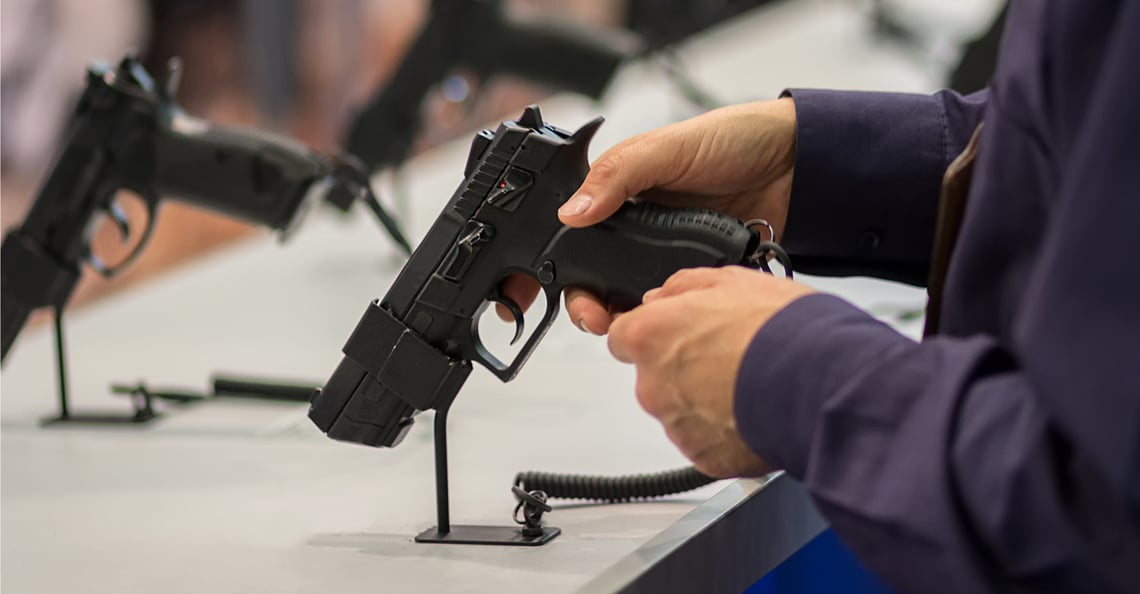Department of Justice officials have settled a long-simmering internal dispute over who qualifies as a “fugitive from justice” when it comes to gun possession — making it possible going forward for some people with outstanding arrest warrants to buy firearms legally.
According to an FBI memo obtained by The Trace, the DOJ has decided that people with open arrest warrants should only be disqualified from buying guns if they have left the state where the warrant was issued, and did so to avoid imminent prosecution or a summons to testify in a legal case.
In doing so, the Justice Department effectively sided with the Bureau of Alcohol, Tobacco, Firearms, and Explosives, the agency that is responsible for enforcing federal gun laws. The ATF had long argued that language in the Brady Act — the 1993 law that created the federal background check system — requiring federal agents to block gun sales to fugitives should be interpreted to mean people with arrest warrants who have fled across state lines. The FBI, which runs the background check system, had adopted a broader definition, blocking sales to anyone with an outstanding arrest warrant.
From November 1998 to February 2017, the FBI denied more than 175,000 sales because the would-be purchaser had an outstanding warrant — second only to the total barred by convictions for felonies or serious misdemeanors. According to an audit last year by the department’s Office of the Inspector General, the ATF disagreed with roughly a third of those rejections.
The new rule means that the FBI will block fewer sales to people with outstanding arrest warrants.
“It will be more difficult in the future to deny a fugitive,” said Darrel Stephens, executive director of the Major Cities Chiefs Association, an organization of police executives representing the largest cities in the United States and Canada. “Someone will have to look at each case to determine if the fugitive meets the criteria. It is not clear who will do that.”
The FBI’s National Instant Criminal Background Check system, or NICS, is the main clearinghouse for screening customers of America’s licensed gun dealers. In some cases, the background check system flags a buyer as prohibited after a sale has already gone through. In those instances, the FBI refers the case to the ATF, which is responsible for retrieving the gun. For years, the ATF has argued that prospective gun owners should remain eligible to buy a gun in the state where they are under warrant, just not in other states.
From 1999 to 2015, the agency had refused to track down about 2,000 weapons in cases where the FBI determined after the sale that the purchase should not have been allowed because the buyer qualified as a fugitive under its expanded definition — anyone with an outstanding warrant.
Spokespeople at the FBI, and the Department of Justice did not comment Monday on the change.
In an email, an ATF spokesperson cited the federal statutes, which define a fugitive from justice as someone with a warrant who has fled across state lines to avoid prosecution or giving testimony.
“We will continue to work with the FBI and our law enforcement partners to reduce violent crime in our communities,” the spokesperson said.
Jim Bueermann, executive director of the Police Foundation, an independent organization dedicated to improving policing, reads the ruling not as ideologically or politically motivated, but rather as the conclusion to a bureaucratic impasse.
“It was inefficient until now,” he said. “The FBI would deny stuff and the ATF would say, ‘No, it’s okay with us.’ From an efficiency standpoint that didn’t make any sense.
“Somebody finally said, ‘This is the rule. Let’s move forward.’”
[Photo: Shutterstock]


